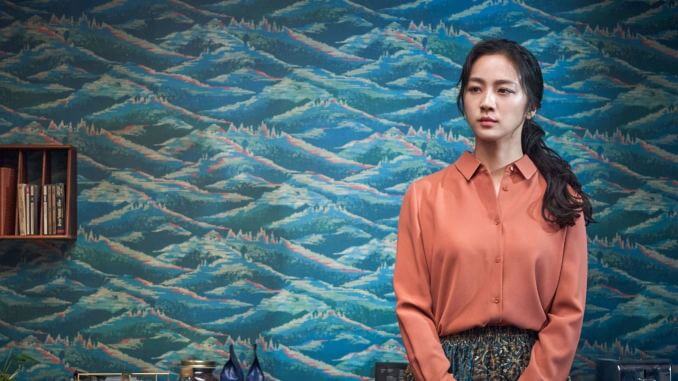Park Chan-wook’s Extravagant Noir Decision to Leave Is Hopelessly Romantic Hitchcock

A detective finds himself falling for his murder suspect, who is fingered for killing her husband. If that sounds like a plot ripped straight from an Alfred Hitchcock film, that’s because it’s textbook Park Chan-wook. The Korean director has been taking inspiration from Hitchcock for much of his career, one defined by twisty mysteries and perverse thrillers that the Master of Suspense likely could never have fathomed. Park’s latest is perhaps the director’s most Hitchcockian in the most crucial aspects, though also more subdued compared to his track record. Decision to Leave is decidedly tamer than some of the titles one might think of when they hear the name Park Chan-wook, and those only looking for another Oldboy will find themselves sorely disappointed.
Hae-jun (Park Hae-il) is an overworked detective who is—in true clichéd, noir form—married to his job more than to his actual wife. The latter lives in quiet, foggy Iso while the “youngest detective in the country’s history” works weeks in Busan, where the crime and murder that sustains him runs rampant. The couple tends to talk about how to keep their marriage lively instead of actually acting upon it. Hae-jun’s wife (Lee Jung-hyun) relays helpful facts about the health benefits of having regular sex, suggesting that they commit to “doing it” once a week. Still, Hae-jun spends more time on stake-outs than in his own bed due to insomnia, which plagues him as a symptom of his pile of unresolved cases. Concurrently with another active case, Hae-jun finds himself adding another crime to his growing folder: A mountain-climber who fell tragically to his demise.
Though by all appearances an accident (despite the late climber’s proficiency), the mountaineer’s much younger Chinese wife, Seo-rae (Tang Wei), quickly elicits suspicion from Hae-jun and his hot-head partner Soo-wan (Go Kyung-Pyo). Park introduces the film’s femme fatale in the most unassuming way: Camera on Hae-jun, with her measured voice off-screen as she enters the morgue to identify her deceased husband. In that moment, Seo-rae could have been any other grieving widow to Hae-jun; just another meaningless piece in the growing puzzle of his unsolved crimes. But when she begins to talk about her husband, she seems to let her feelings bleed into her words. She tells the detective she always suspected one of his trips would kill him “at last.” At last? What an odd thing to say about your lover’s death.
Still, Hae-jun is quick to excuse her behavior. If he died, he tells Soo-wan, he assumes his wife would have been expecting it to happen, just as Seo-rae expected it of her husband. Seo-rae is pegged as the murder’s prime suspect, but Hae-jun’s further scrutiny of the woman becomes antithetical to his actual investigation. His stake-outs of her are an intimate ritual in which he slowly grows closer to the recent widow, visualized by Park superimposing Hae-jun in scenes with Seo-rae as he calls her or observes her from afar. Even after observing her swiftly returning to her job as an elderly caregiver and removing her wedding ring, and learning that she had an apparent motive (abuse), Hae-jun is reluctant to lay blame—though eager to continue “investigating.” When Hae-jun brings in Seo-rae for further questioning, he indulges in an expensive sushi dinner for the two of them. At one point in this same scene, Park showcases one of the many clever camera tricks in a film full of them: He frames Hae-jun and Seo-rae both in reality and in the reflection from the interrogation room’s one-way window. Barely perceptible, Park subtly adjusts the rack focus multiple times, so that the real Hae-jun speaks to the reflection of Seo-rae, and vice-versa.